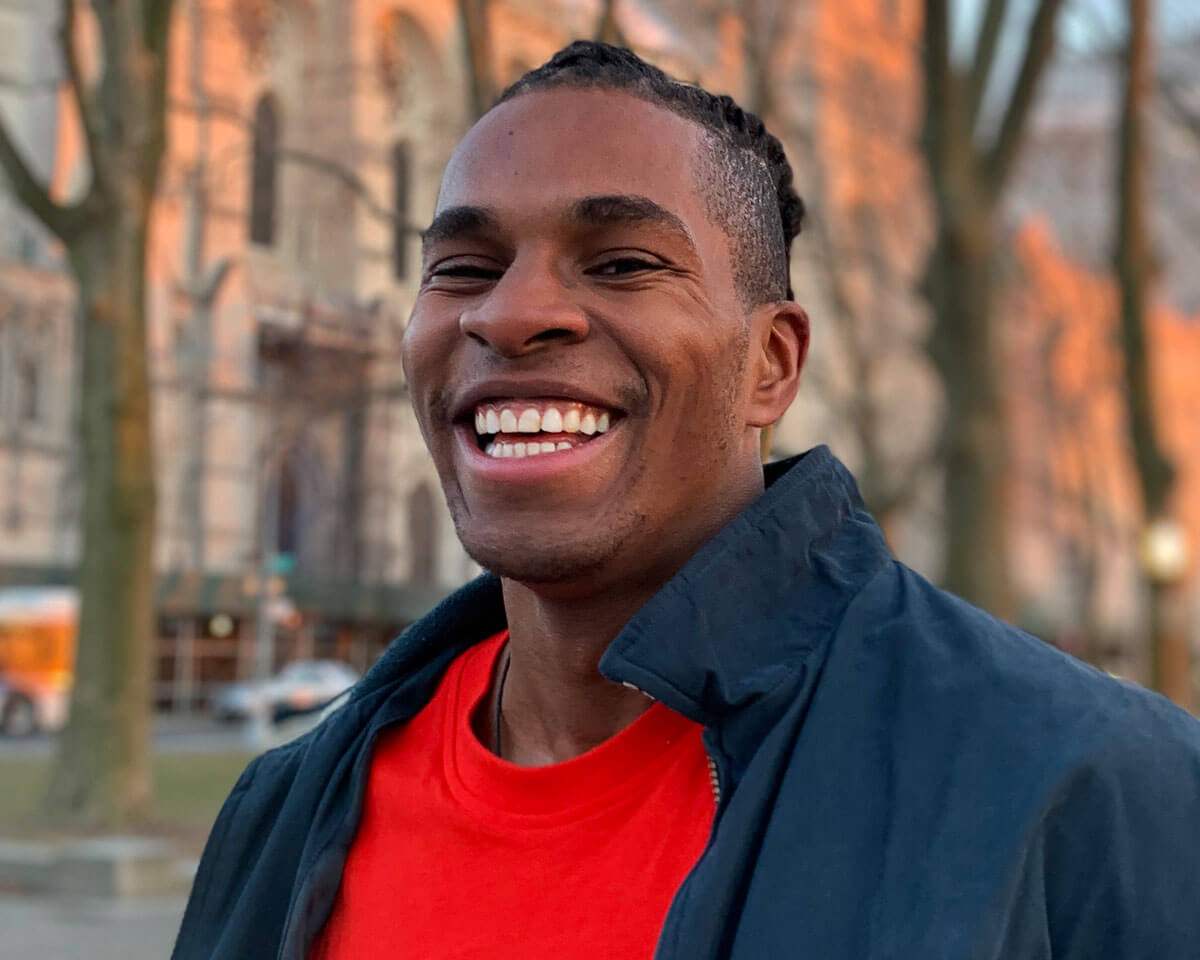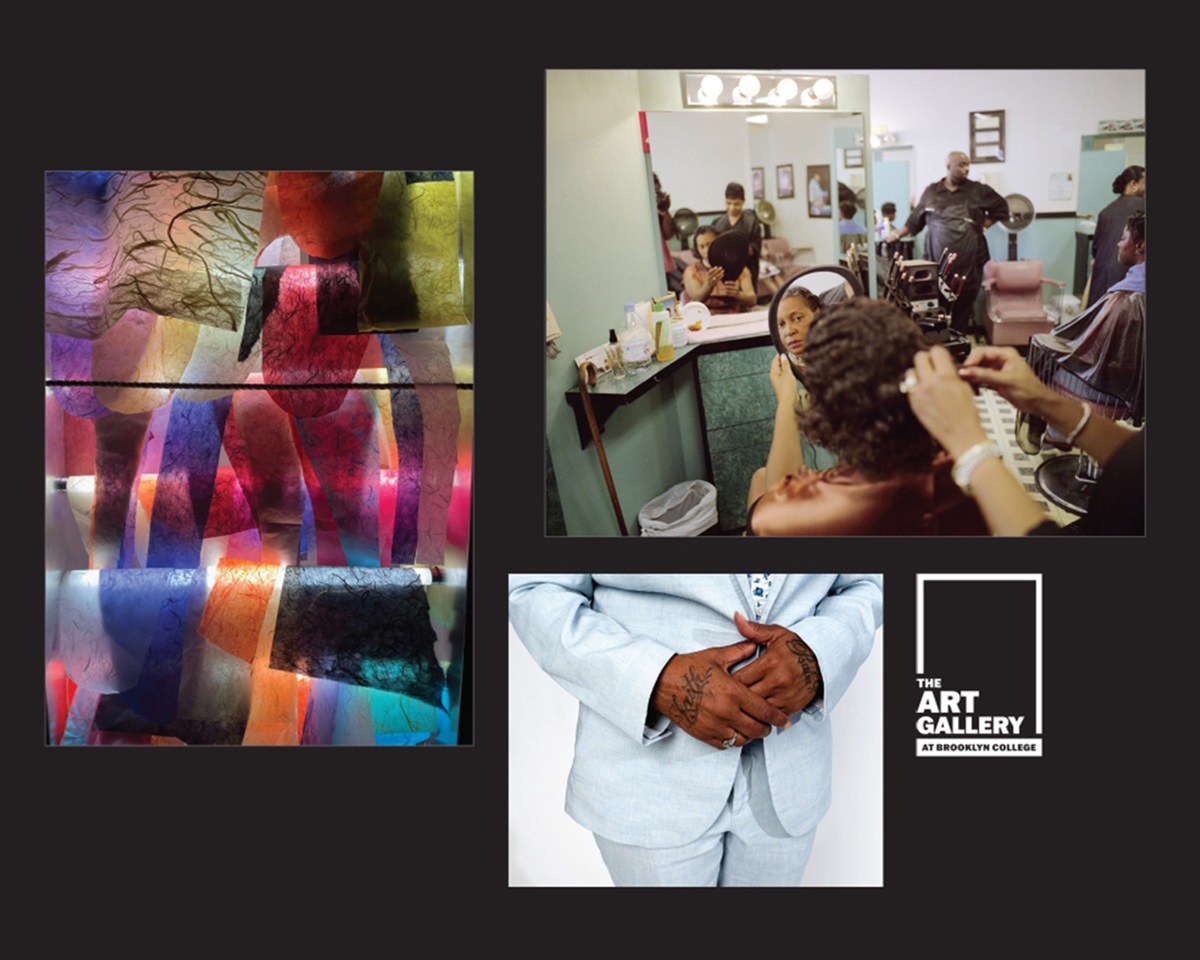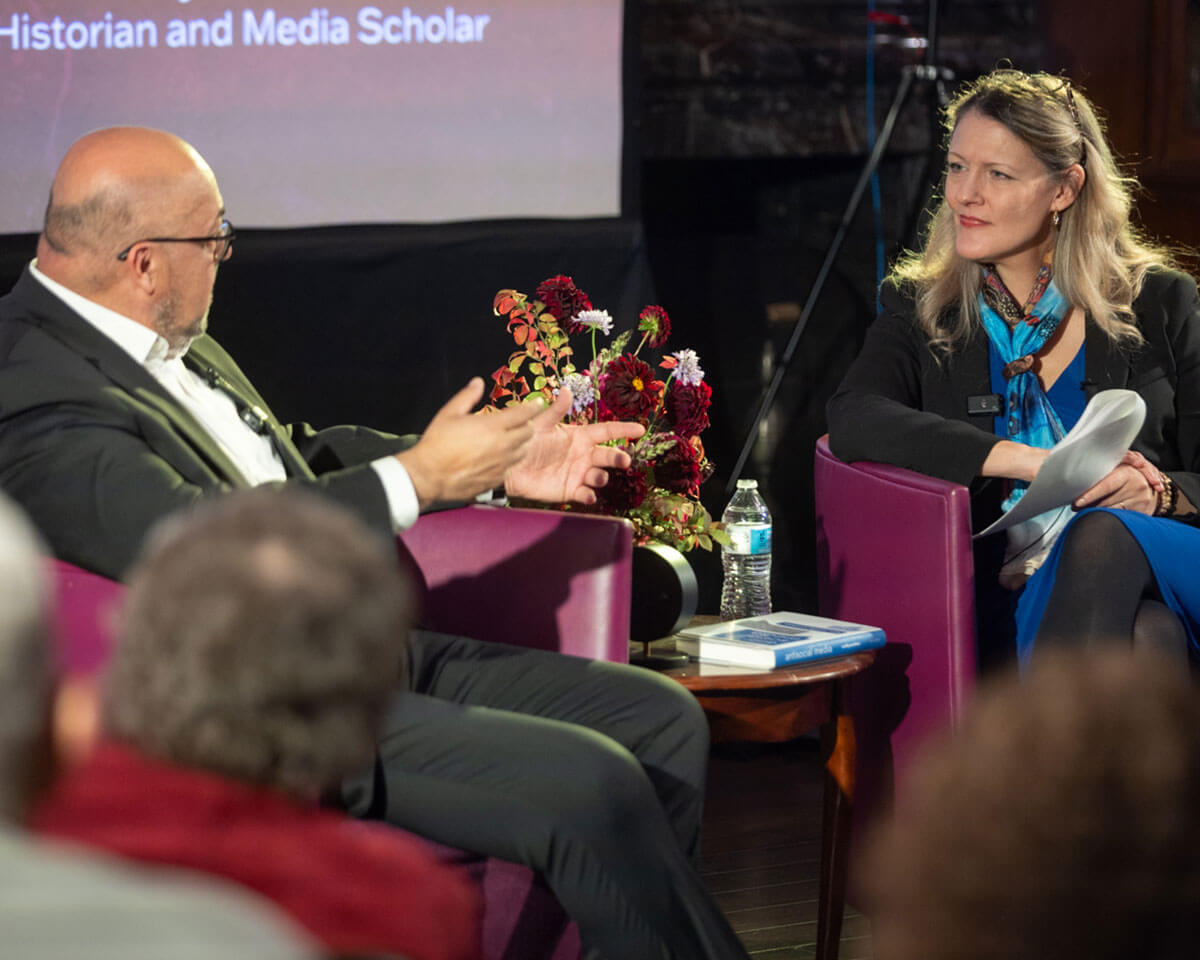When Samori Harris transferred from SUNY Geneseo to Brooklyn College in 2019, he wasn’t sure which direction to take his studies. He had interests in sociology, international relations, and political science, but nothing was clicking.
While he is now majoring in information systems with a minor in cognitive science, the 23-year-old admits he still does not have his future quite mapped out yet. But that is OK because thanks to the resources, mentorship, and research skills he obtained through the Brooklyn College Mellon Transfer Student Research Program, he is more prepared and confident than ever before in his abilities as a researcher and change agent.
Harris, who grew up in Park Slope in Brooklyn and whose mother emigrated from Haiti in September 1976, took a year off before he enrolled at Brooklyn College. The time away from academics helped him get a taste of “the real world,” and he gained valuable work experience and advice while working at a catering business.
“I would always talk to the owners about my future,” Harris says.
“They urged me to return to school, and after a high school friend talked to me about majoring in computer science, it seemed like a good fit.”
Harris enjoys the fact that his major is more multifaceted and combines technology and elements of business.
Still, without a clear direction, Harris says the Mellon program helped him hone other skills he knows will be invaluable down the road. And while you’d think his research project would be focused on technology, it originated from a more personal place that is helping him understand himself, the world around him, and the power of information.
“The focus of my research came about after a general education class I took during my first semester called Jews from New York. One of our final projects involved writing a research paper on a topic of our choosing. With the freedom I was given, I decided to explore the relationship between Black and Jewish people during the Civil Rights movement. There were interesting elements to the relationship, for instance, the difference between how Jewish people from the North and those from the South felt about the movement and the extent to which they were involved. I worked a lot on that project with Assistant Professor Allan Amanik from the Judaic Studies Department. When the Mellon program started, he reached out and proposed we expand on those topics and themes,” Harris says.
For four months, Harris used the Mellon program resources to delve into the origins of mass incarceration while examining different prison reform advocacy groups, including those in Black and Jewish communities. His research is ongoing as he continues to look at how these groups are attempting to improve the criminal justice system’s infrastructure.
Harris says part of the inspiration for the research subject came from growing up in Park Slope, where there is a large Jewish population. He would constantly wonder about the relationship between the two groups. Discussions with his professor, discovering new and reliable sources of information, and using new research methods have been the biggest takeaway from the program for Harris.
As a Black person, Harris found a deeper connection.
“Diving into the lives of Black adolescents oppressed by the criminal justice system designed by the very country that swore to protect all who set foot on their land was traumatic but alleviating,” he says. “Since I had my fair share of encounters with police, I always had to remind myself to release my pent-up emotions in a composed and strategic manner, resulting in me channeling my frustration through this research paper.”
“The main theme I discovered during those four months was that even though our society claims that the status of racism in this country has improved, the efforts of past advocacy groups—the National Conference of Black Lawyers, the National Council of Jewish Women, and the American Bar Association, among others—were only able to temporarily close the wounds left by the criminal justice system in America. Once these groups fade, the wound is aggravated until we bleed again. I consider myself blessed to have the chance to read more about my history so that I can follow in the footsteps of these groups. The influence this program had on me is beyond physical and has inspired me to find innovative ways to end mass incarceration for Black people across the country.”
Return to the BC Magazine



